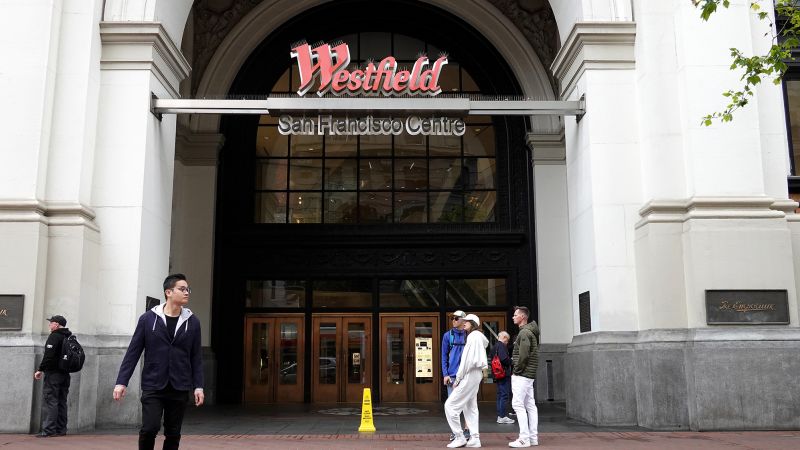San Francisco’s mayor Thursday proposed remaking the city’s struggling downtown by tearing down abandoned retail space, including the city’s Westfield mall, and building new structures to reshape the struggling city.
“We can’t completely rely on retail in downtown restricting what happens in downtown anymore,” Mayor London Breed told Bloomberg’s Technology Summit in San Francisco on Thursday.
Breed’s comments come as San Francisco faces empty offices, a cratering commercial real estate market, and an exodus of retailers from its once-bustling downtown area, especially as pandemic work-from-home policies saw many residents leaving for less expensive parts of the country.
San Francisco has also come under fire recently by politicians, business leaders and locals for a perceived uptick in retail thefts, though it’s not clear that crime has grown significantly more serious, according to industry watchers.
Breed argued that an overall shift to online shopping post-pandemic has contributed to declining foot traffic in the area.
“You can convert certain spaces. A Westfield Mall could become something completely different than what it currently is,” she said.
“We can even tear down the whole building and build a whole new soccer stadium. We can create lab space or look at it as another company in some other capacity,” she added.
Earlier this month, Westfield said it planned to surrender its mall, the San Francisco Centre, back to its lender. The mall operator cited the “challenging operating conditions in downtown San Francisco, which have led to declines in sales, occupancy and foot traffic.”
Westfield’s exit followed another major company’s pullback from the city: Park Hotels and Resorts, the investment firm that owns Hilton San Francisco Union Square and Parc 55 hotels, also ceased payments to its lender in June.
According to a tally from the San Francisco Standard, 20 retailers near the city’s Union Square have shuttered since 2020.
Breed called on businesses to reinvest in the city’s community and “be even more creative” in thinking about ways to use space.
“Let’s look at what’s possible rather than dwelling on the stories of another store… There are a lot of people who may not even shop in those places,” she said.
The retailers’ exits are a setback for San Francisco, which has seen its economy hard hit by the pandemic. Many tech companies in the city were quick to switch to remote work or flexible hybrid policies over the last few years, resulting in many workers filtering out of the city. Office vacancies in San Francisco have reached a 30-year high, negatively impacting the city’s commercial real estate market and local retailers and restaurants, which have experienced declining sales and foot traffic.
“Would I like for everyone to come back to the office five days a week? Of course, I would. But is that going to happen? Probably not. So, let’s make some adjustments to do everything we can to reimagine what parts of San Francisco can be,” Breed said.
Read the full article here




